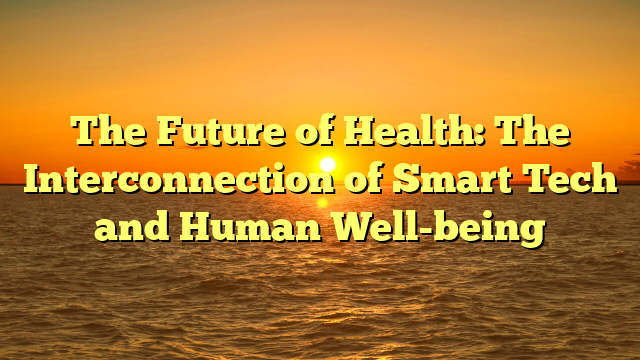In today’s rapidly evolving world, the integration of key sectors such as finance, health, AI, and tech is becoming increasingly apparent. This article will explore how these domains blend together and their mutual influence on human advancement.
1. Financial Technology (FinTech): Revolutionizing the Economy
FinTech has disrupted traditional banking in dramatic ways.
People demand fast access to their transactions. With digital wallets like PayPal, financial transactions are instant.
Digital assets have grown as new financial instruments, offering increased security.
FinTech also enables automated investment tools. Platforms like Wealthfront use algorithms to help users make informed investment choices.
Meanwhile, businesses use FinTech for better budgeting. Machine learning tools analyze consumer behavior to optimize revenue.
2. Technology’s Impact on Healthcare
Digital innovations are revolutionizing healthcare delivery.
Smart devices like Apple Watch track everything from sleep patterns to blood pressure. This empowers users to take proactive health steps.
Virtual health consultations has made healthcare more efficient. Especially during the COVID-19 pandemic, patients and doctors embraced virtual appointments via apps.
Artificial intelligence tools help physicians analyze test results faster and more accurately. Tools like IBM Watson Health have shown great promise in early-stage disease identification.
3. The Rise of Artificial Intelligence Across Industries
Artificial Intelligence (AI) is now part of everyday business. It plays a pivotal role in sectors ranging from education to logistics.
In finance, AI helps with algorithmic trading. AI models analyze banking patterns to detect unusual activity in real-time.
In healthcare, AI enhances drug discovery. togel online use AI to identify new treatments. This reduces time and costs in bringing life-saving drugs to market.
In technology, AI drives autonomous vehicles. Self-driving cars from Waymo use AI to improve traffic safety. AI also powers assistants like Siri, making everyday life easier.
4. Smart Health and Intelligent Finance: The New Synergy
Health and finance are deeply intertwined.
Poor financial decisions often lead to stress, which in turn impacts physical health. Conversely, strong financial planning supports healthier choices.
Apps now combine financial advice with health metrics. For example, platforms like Lark Health reward healthy behaviors.
Insurance companies also use tech to adjust premiums based on lifestyle choices. This incentivizes nutrition and helps reduce healthcare costs.
5. Challenges and Ethical Considerations
Despite the many benefits, there are significant challenges.
Cybersecurity is a key concern. As users share more personal information, companies must ensure ethical usage.
There are also concerns about bias in AI. If AI systems are trained on biased data, they can reinforce inequality.
Moreover, overreliance on technology may create dependency. For example, if people fully trust AI financial advisors, they may miss important contextual insights.
6. The Road Ahead: Innovation with Responsibility
In the coming years, the intersection of finance, tech, AI, and health will intensify.
Global institutions must collaborate to create fair regulations. Education is crucial—people need to understand both the limits of emerging technologies.
AI-aware financial planners will become the norm. Tomorrow’s leaders must navigate a world where money, machines, minds, and medicine intersect.
—
Final Thoughts
The evolution of interconnected domains is not just a trend—it’s a redefinition of progress.
Whether it’s wearables tracking our health, these innovations are transforming society.
But with great power comes a duty to protect rights. It’s up to tech leaders and individuals alike to ensure that this future is fair.
